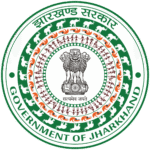ABOUT THE DEPARTMENT OF PLANNING AND DEVELOPMENT
The Department of Planning and Development plays the important role in the socio-economic progress of Jharkhand. Established as a pivotal arm of the state government, it is the primary architect of Jharkhand’s developmental vision. In a state endowed with immense mineral wealth, rich cultural heritage, and significant potential for growth, this department plays the critical role of a strategic planner, coordinator and monitor ensuring that the state’s resources are harnessed effectively for equitable and sustainable development.
The department’s core mandate is to formulate comprehensive, evidence-based plans that align with the state’s long-term aspirations and the national development agenda. Its vision is to transform Jharkhand into a prosperous, inclusive, and economically vibrant state by Balanced Regional Development, Sustainable and Inclusive Growth, Optimal Resource Mobilization.
The department serves as the primary point of contact for planning-related matters with the NITI Aayog (the National Institution for Transforming India) and other central ministries focusing on cooperative federalism. It is responsible for presenting Jharkhand’s development case, securing central funds and approvals for state plans and aligning state schemes with national programs.
A key thrust area of the department is the implementation of the Aspirational District and Aspirational Block Programme which aims to accelerate socio-economic progress in the most underdeveloped regions by focusing on measurable indicators across health, education, agriculture, financial inclusion, and basic infrastructure. Through targeted interventions and data-driven governance, the programme seeks to reduce regional disparities and promote inclusive development.
The preparation of the Outcome Budget is another critical function, linking financial outlays with tangible results. By articulating clear objectives, outputs, and outcomes for each scheme, the Outcome Budget enhances transparency, accountability, and performance-driven administration. This framework aligns departmental activities with the broader Sustainable Development Goals (SDGs), enabling the state to track progress on global commitments such as poverty reduction, quality education, gender equality, climate action and sustainable economic growth.
Supporting these processes is the Directorate of Economics and Statistics, which provides essential statistical inputs, survey data, analytical reports and real-time monitoring mechanisms. Its activities underpin evidence-based decision-making, ensuring that planning interventions are grounded in robust data and scientific analysis. In addition to this the directorate is also responsible for implementing vital statistics (Birth and Death Registration Act) in the state.
In addition to programme implementation, the department is responsible for the prudent management of untied funds, ensuring that decentralized resources are allocated and utilized effectively to address local priorities. By promoting flexibility in planning, the management of such funds strengthens grassroots governance and enables timely solutions to localized challenges.

